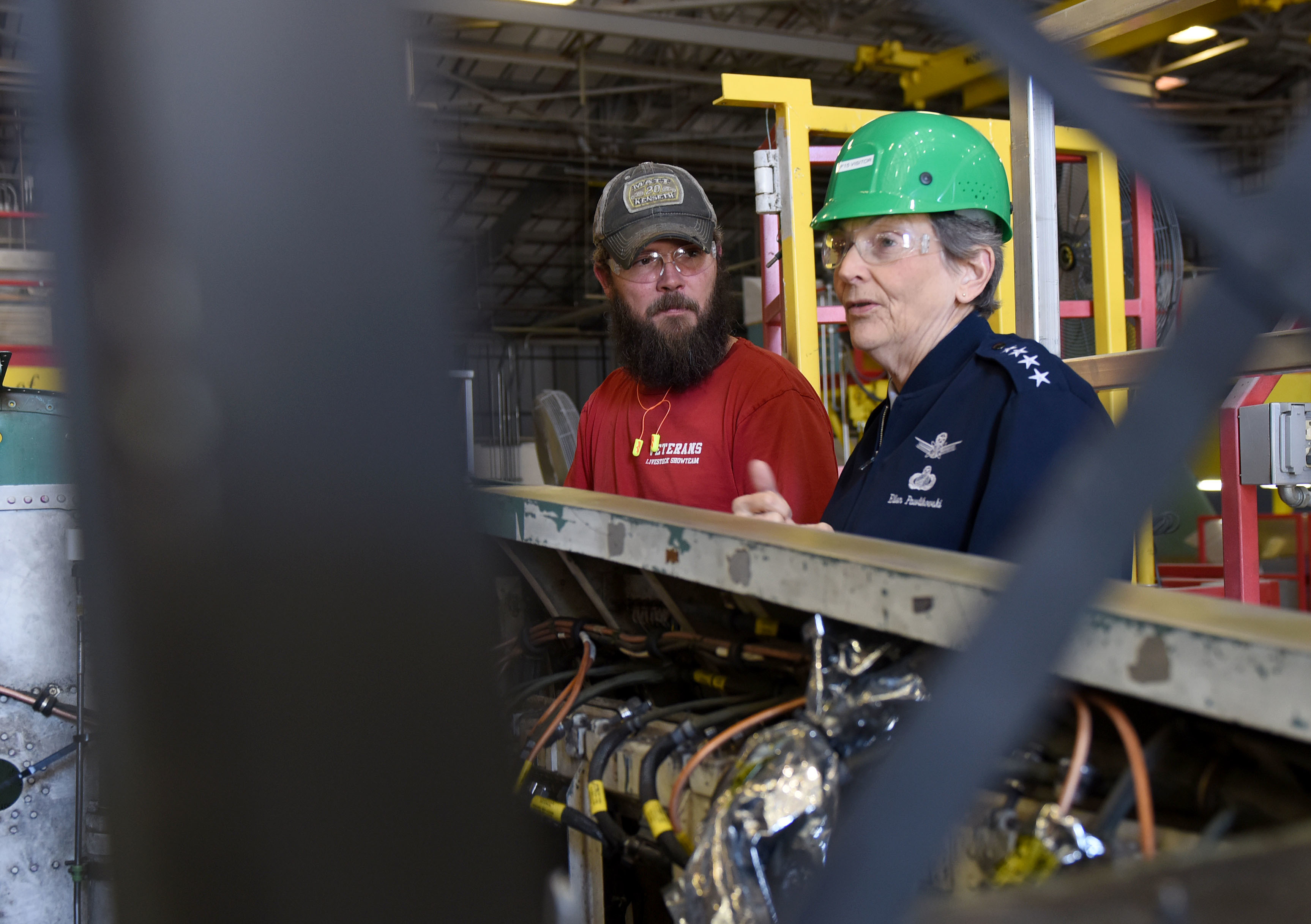
Gen. Ellen Pawlikowski, Air Force Materiel Command commander, discusses F-15 maintenance with Donald Brock, 561st Aircraft Maintenance Group sheet metal mechanic, during a visit to Warner Robins, Ga., on March 22, 2018. Air Force photo by Tommie Horton.
A recent spate of Air Force crashes and other accidents that have triggered congressional inquiries, concerns about long-neglected readiness accounts and a mandated day-long operations stand-down to focus on safety is being examined for deeper causes still, Air Force Materiel Command chief Gen. Ellen Pawlikowski told reporters Tuesday.
“We don’t consider it a crisis,” Pawlikowski said of the recent rash of mishaps, but “I’ve asked that we do an …’out of cycle look’ to see what has happened.” The request was made to wing commanders to look at the “health of weapon systems” and she has also tasked her organization to do more data mining to look for “anything we’re missing” that could be “predictive of the next mishap.”
The Air Force is emulating a Delta Airlines program that examines data generated by various aircraft systems looking for the onset of problems, to arrange for an aircraft to be in a place where it can be fixed before the problem erupts. The Air Force can’t directly copy the effort because it doesn’t automatically collect as much data as an airliner does on its various systems. It also needs “the right algorithms,” and a supply chain “that supports it,” she said.
“We have elevated interest in making sure we’re not missing anything,” she said of the safety program. Commanders are looking for “any spikes or unusual behavior. She said she gave commanders until “the middle of July” to get back with their findings.
Pawlikowski discounted the idea that aircraft are experiencing problems as a delayed result of sequestration-driven or manpower-shortage-driven postponements of maintenance, saying that if an aircraft cannot get the necessary maintenance, it is simply withdrawn from service.
“We won’t fly in an unsafe mode,” she said, adding “I would be surprised to find a direct correlation” between a funding-driven deferment of maintenance and an accident. The default move of not flying a plane that is “high risk” would more likely produce “a reduction in aircraft availability” than an accident.
Pawlikowski could not discuss the various accidents that have occurred or theories about them because investigations are underway and “we do not have the root cause” identified for them, she said.